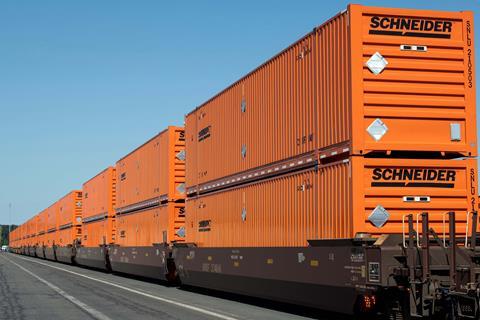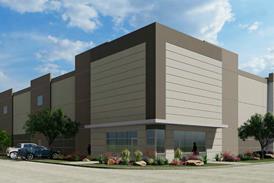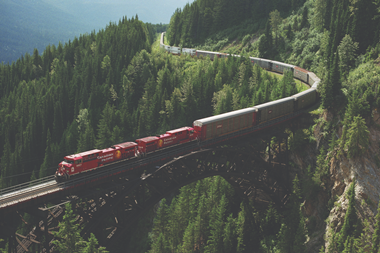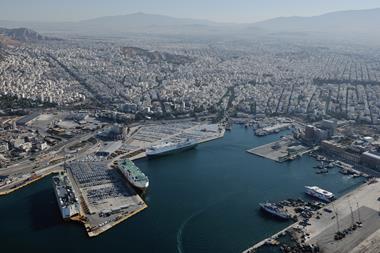Schneider National has relocated to a new office in Mexico City to more easily support customers looking to organise overland cross-border freight moves between the US and Mexico.
Schneider has been operating in Mexico for 32 years, providing cross-border transport services, including intermodal, dedicated, truckload and expedited shipments, along with brokerage services. The company provides automotive supply chain technology, logistics and warehousing, providing multimodal capacity as long with cross-dock, transloading and international services.

Citing data from the Mexico Institute for Competitiveness, the logistics provider said that in the first half of 2023 foreign direct investment related to nearshoring in Mexico increased by 47%, as companies looked for greater operational efficiency and closer control over projects in terms of cost-effectiveness, logistics and risk mitigation.
“It’s much easier and quicker for shippers to move their freight across the border than the ocean, and that’s been a real learning for them over the past few years,” said Erin Van Zeeland, Schneider’s chief commercial officer, group senior vice-president and general manager of logistics. “When companies diversify the transportation modes they use to move their freight – such as combining intermodal, truckload and dedicated – they are able to experience better on-time service, seamless transportation and a higher level of security for their freight.”
Last year, Schneider expanded its cross-border capabilities by becoming an intermodal carrier on CPKC’s flagship single-line intermodal transport service connecting the US and Mexico. Schneider said its partnership with CPKC creates more options for customers and furthers efficiency by increasing reliability, security and capacity.
CPKC’s International Railroad Bridge at Laredo, Texas, is an alternative to often congested highway ports of entry. A second span to expand the bridge’s capacity and further increase the efficiency of cross-border train movements is currently under construction and expected to be completed by the end of 2024.
The service also takes carbon out of the supply chain and saves on fuel, with one ton of freight being shipped up to 500 miles (804 km) on the equivalent of a single gallon of fuel, according to the company. It said that the north-south zero-handoff route with CPKC saves approximately 3,400 pounds (1,540 kg) of CO2 emissions and 157 intermodal gallons (594 litres) per trip compared to existing over-the-road routes.
“Today, reliability is more important to customers than ever, and our relationship with CPKC allows us to provide faster transit times with more consistent service and a higher level of security while still delivering on-time,” said Schneider’s senior vice-president and general manager of intermodal, Michael Baumgardt. “Customers are also showing a strong commitment to improving their environmental impact, and they are looking for greener solutions to transport their goods with responsible providers that can offer a variety of services to cover their needs.”

























![Global[1]](https://d3n5uof8vony13.cloudfront.net/Pictures/web/a/d/s/global1_726550.svgz)





![Mexico[1]](https://d3n5uof8vony13.cloudfront.net/Pictures/web/a/d/s/mexico1_22990.svgz)









No comments yet